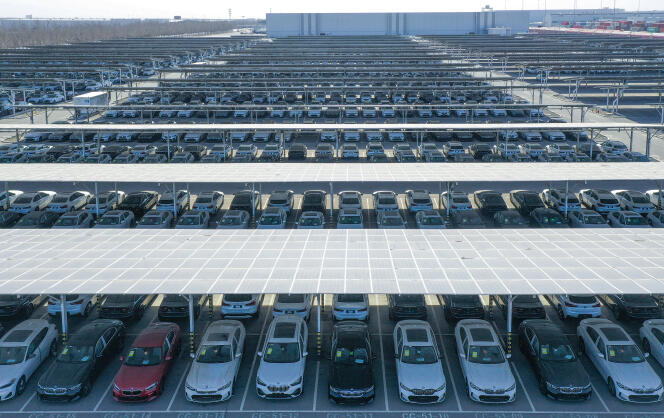For a long time, in China, the northeast of the country did not have a good reputation. Too polluted, too dominated by public behemoths, too corrupt, too similar to neighboring Russia. The North is yesterday’s China.
In 1992, it was in the far south of the country that Deng Xiaoping kicked off reform and opening up. China that wins is Shenzhen, not Shenyang, the capital of Liaoning, the main province in the northeast of the country, alongside Heilongjiang and Jilin.
A misfortune that never comes alone, Liaoning has long suffered from a second handicap: in the 1990s, the strong man of the province was called Bo Xilai, an ambitious Maoist who, ten years later, would be the main political rival of a certain Xi Jinping. Bo Xilai has been sleeping in prison since 2012, and the master of the country is said to not have Liaoning in his heart.
But this past seems to be over and Liaoning feels confident enough and proud of its transformation to invite – with the approval of Beijing, of course – a few foreign journalists to observe its transformation.
Countless factory chimneys
In fact, Shenyang, like the German Ruhr, is worth more than its reputation. In the 20the century, the city was famous for its countless factory chimneys. But, at the end of the 1990s, around three hundred steel sites closed, in a social plan undoubtedly without equivalent in the world, and today Shenyang is a green city.
This is where BMW has set up its main Chinese factory. The city’s largest taxpayer, the company employs 23,000 people there, not counting its 430 subcontractors, including the French Michelin, which employs around 3,000 people there.
If, overall, Liaoning (42 million inhabitants) sees its population decrease due to the attraction of young people to the South, with higher salaries, Shenyang sees its increase. The city is expected to exceed ten million inhabitants by the end of the decade. Its rival, Dalian (seven million inhabitants), the large port in the south of the province, benefits from the same attraction.
As much as the leaders of the south of the country like to highlight private companies, those of Liaoning do not hesitate to promote their economic role and voluntarism. Like Xi Jinping, they are convinced that public groups must remain the spearhead of the economy. The companies they promote are almost all closely linked to political power.
Created in 1921 (the region was then occupied by Japan), North Heavy Industry is the archetype of the metallurgical conglomerate, manufacturing both the steel needed by the automobile industry and giant tunnel boring machines intended for public works groups. Bingshan, a specialist in refrigeration systems, but also industrial heating, has as shareholders both the Japanese Panasonic and the city of Dalian. Rongke Power, a company which employs six hundred people and which plans to quickly double its workforce, presents itself as one of the world leaders in vanadium batteries (a technology which greatly increases their performance). Rongke Power also has the Academy of Sciences as a shareholder and uses Dalian as a demonstration zone.
You have 51.31% of this article left to read. The rest is reserved for subscribers.
